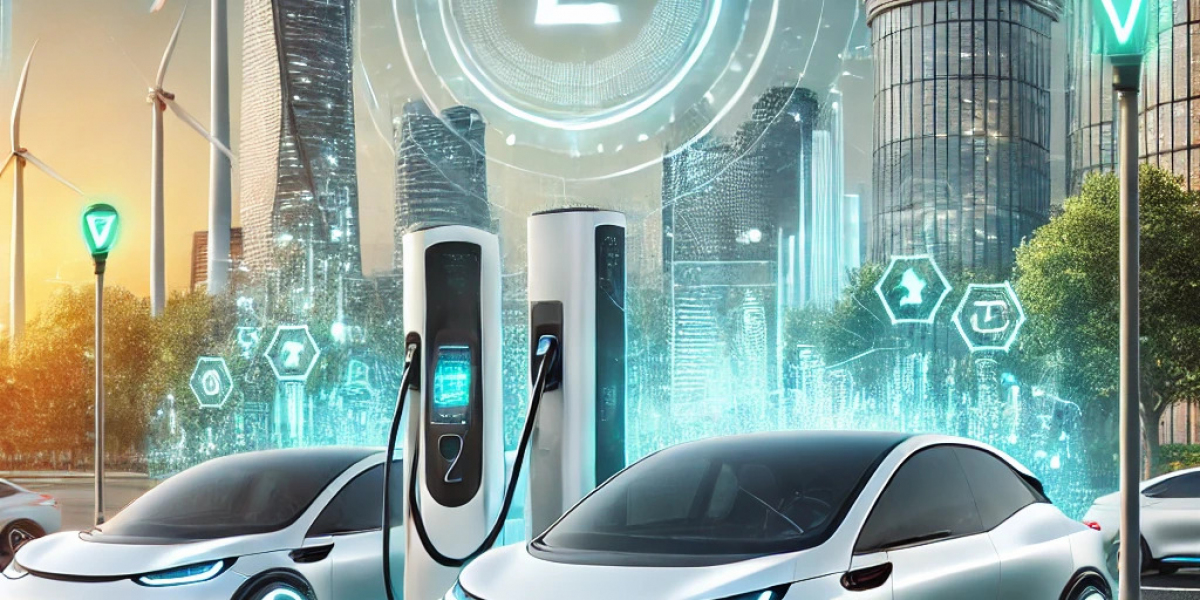The automotive industry is undergoing a seismic transformation, driven by advancements in electric vehicle (EV) technology. From cutting-edge battery systems to autonomous driving features, the EV market is not only reshaping transportation but also spearheading a global shift toward sustainability and innovation.
The Electric Revolution: A Snapshot of the EV Market
The global electric vehicle market has seen unprecedented growth in recent years. In 2023, EV sales accounted for over 14% of total global vehicle sales, a sharp rise compared to just a decade ago. By 2033, experts project EV adoption to surpass 50%, driven by consumer demand, technological advancements, and regulatory support. BIS Research is tracking the EV Industry trends and key developments.
Key Factors Driving EV Market Growth:
- Climate Concerns: Governments and industries are prioritizing carbon reduction, and EVs play a pivotal role in achieving net-zero emissions targets.
- Government Incentives: Subsidies, tax benefits, and rebates encourage EV adoption, making them more accessible to consumers.
- Technological Innovations: Advances in battery efficiency, charging infrastructure, and connectivity are making EVs more practical and appealing.
- Rising Fuel Costs: Fluctuating fossil fuel prices highlight the economic benefits of switching to electric mobility.
Breakthrough EV Technologies Shaping the Automotive Industry
Advanced Battery Technology:
The backbone of EV innovation lies in battery advancements.
- Lithium-Ion Batteries: Dominating the market with improved energy density, lower costs, and longer lifespans.
- Solid-State Batteries: The next big leap in energy storage, offering faster charging times, higher safety, and extended ranges.
- Battery Recycling: Circular economy initiatives are reducing waste and increasing the sustainability of EVs.
Autonomous Driving Systems:
Electric vehicles are at the forefront of autonomous driving technology.
- Integration of AI-powered sensors and machine learning algorithms is enabling self-driving capabilities.
- EV manufacturers like Tesla, Waymo, and others are pioneering Level 4 and 5 autonomy, bringing fully autonomous vehicles closer to reality.
Smart Charging Infrastructure:
The rise of smart, connected charging stations is eliminating range anxiety.
- Ultra-fast Charging: Cutting charging times to mere minutes.
- Vehicle-to-Grid (V2G) Technology: Allowing EVs to return unused energy to the grid, promoting energy efficiency.
- Wireless Charging: Making charging as simple as parking the vehicle over a charging pad.
Lightweight Materials:
EV manufacturers are adopting lightweight materials like carbon fiber and aluminum composites to improve energy efficiency and extend vehicle range.
Connected Vehicles:
The integration of IoT and 5G technology is enabling connected EVs that provide real-time data on vehicle performance, traffic updates, and predictive maintenance alerts.
Request for a sample research report on the electric vehicle market
The Impact of EV Technology on the Automotive Industry
Redefining Manufacturing:
- Traditional automakers are transitioning to EV production, investing heavily in new assembly lines and supply chains.
- Partnerships with battery manufacturers and tech companies are becoming the norm to accelerate innovation.
Creating New Business Models:
- Subscription-based EV services and car-sharing platforms are transforming ownership concepts.
- The growth of Mobility-as-a-Service (MaaS) is giving consumers flexible transportation options.
Driving Economic Opportunities:
- The EV revolution is creating millions of jobs in manufacturing, software development, and charging infrastructure.
- Investments in Giga-factories for battery production are fostering economic growth in key regions.
Disrupting Traditional Automakers:
- Legacy automakers like Ford, GM, and Volkswagen are racing to compete with EV pioneers such as Tesla and BYD.
- The industry is witnessing a surge in startups that are pushing the boundaries of innovation.
Global Adoption Trends
North America
- The U.S. leads with aggressive EV policies and investments in charging infrastructure.
- EVs like the Tesla Model 3 and Ford Mustang Mach-E are dominating the market.
Europe
- Europe is a global leader in EV adoption, thanks to stringent emission regulations and consumer incentives.
- Norway, Germany, and the Netherlands are at the forefront, with high EV market penetration.
Asia-Pacific
- The fastest-growing EV market, driven by massive adoption in China, India, and Japan.
- China leads in EV production and exports, supported by strong government backing.
Latin America and MEA
- Emerging regions are slowly adopting EV technology, focusing on infrastructure development and affordability.
Get more insights on the Automotive Market Research Reports.
Challenges in the Electric Vehicle Market
Despite its rapid growth, the EV market faces hurdles:
- High Initial Costs: The upfront price of EVs remains a barrier for many consumers.
- Charging Infrastructure Gaps: Expanding charging networks in rural and underdeveloped regions is critical.
- Battery Sustainability: Scaling battery recycling and sourcing ethical raw materials are ongoing challenges.
- Energy Grid Strain: Widespread EV adoption demands upgrades to electricity grids to handle increased loads.
The Road Ahead for Electric Vehicles
The future of the Electric Vehicle Market is bright, fueled by continuous innovation and growing consumer demand. Key trends to watch include:
- EV Energy Ecosystems: Integration with renewable energy sources like solar and wind for a complete green solution.
- Affordable EV Models: Increasing competition will drive down costs, making EVs accessible to more consumers.
- Global Collaboration: Partnerships between automakers, governments, and tech companies will accelerate progress.
Conclusion
Electric Vehicle Market technology is transforming the automotive industry, paving the way for a sustainable and connected future. With breakthroughs in battery efficiency, autonomous driving, and smart infrastructure, EVs are set to dominate the roads while reducing environmental impact.
As the global shift toward electric mobility accelerates, consumers, manufacturers, and governments must collaborate to address challenges and unlock the full potential of this revolutionary market.









